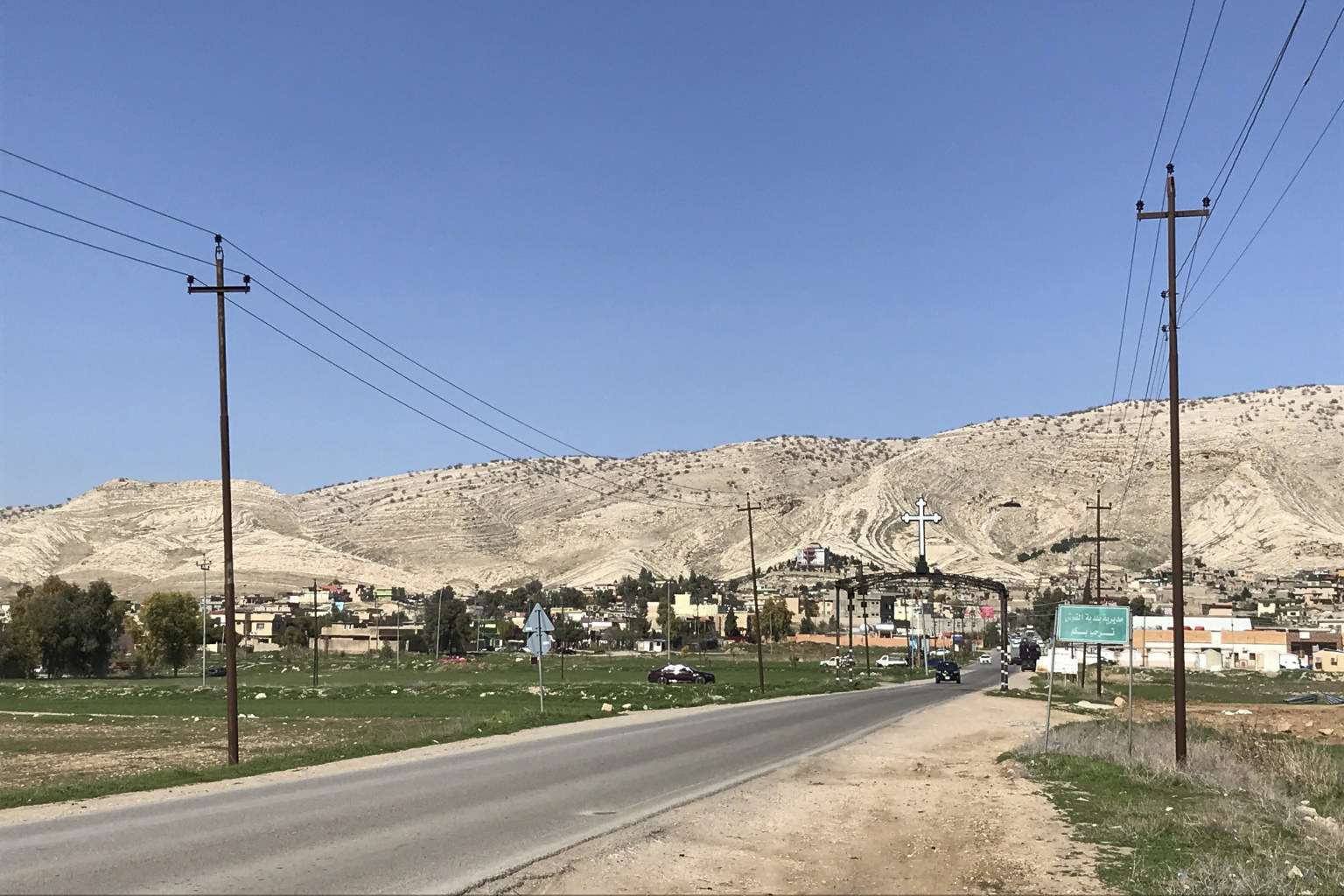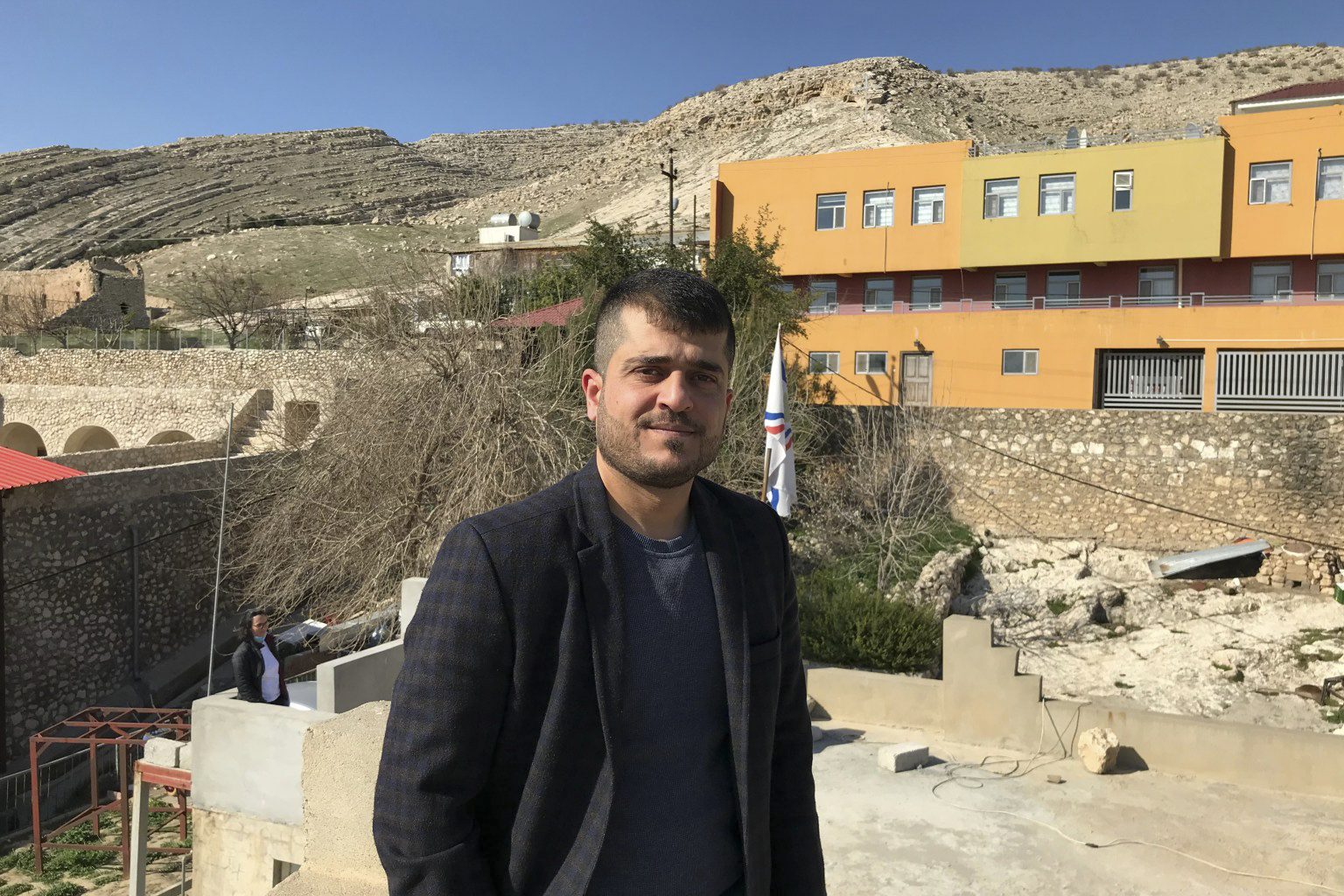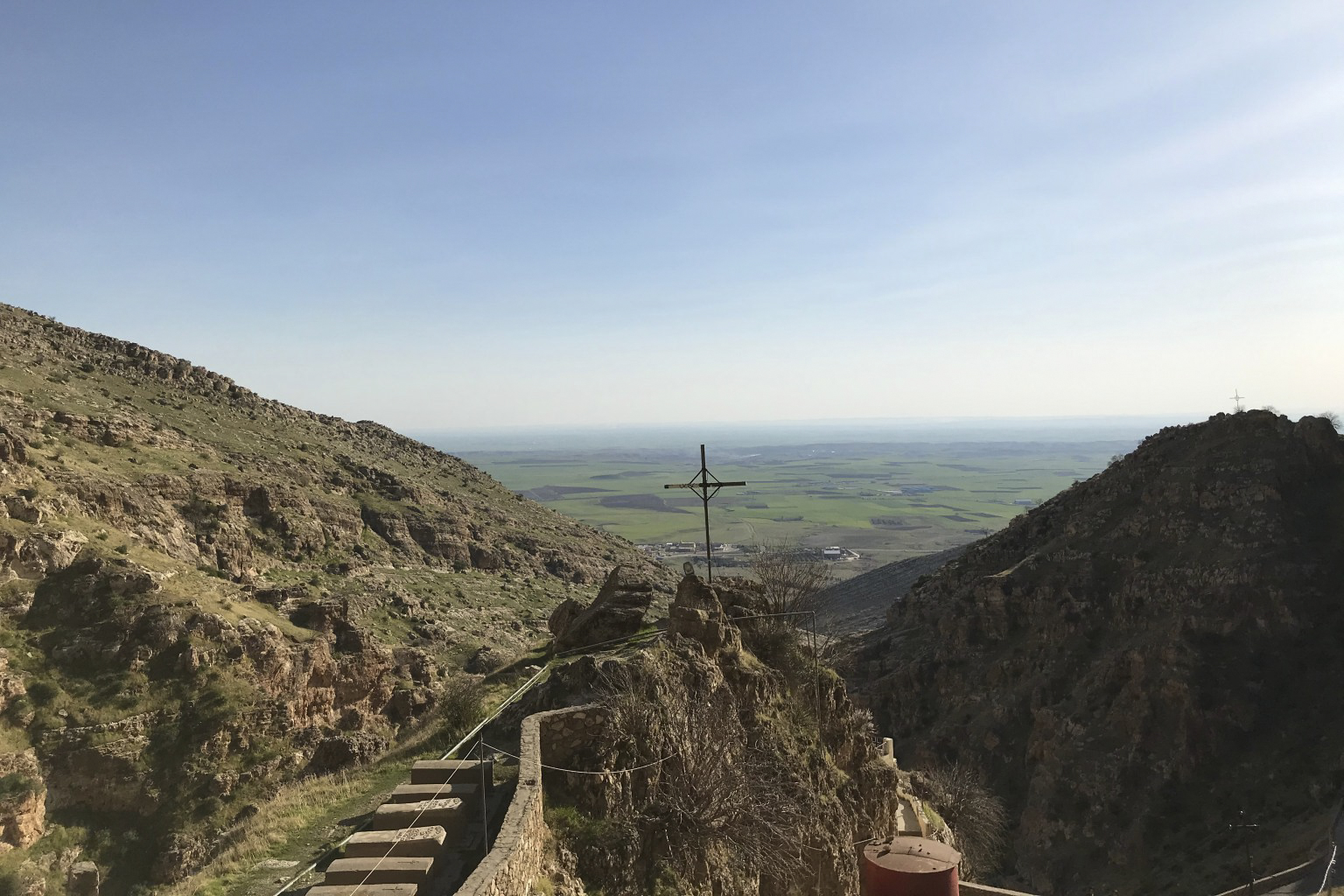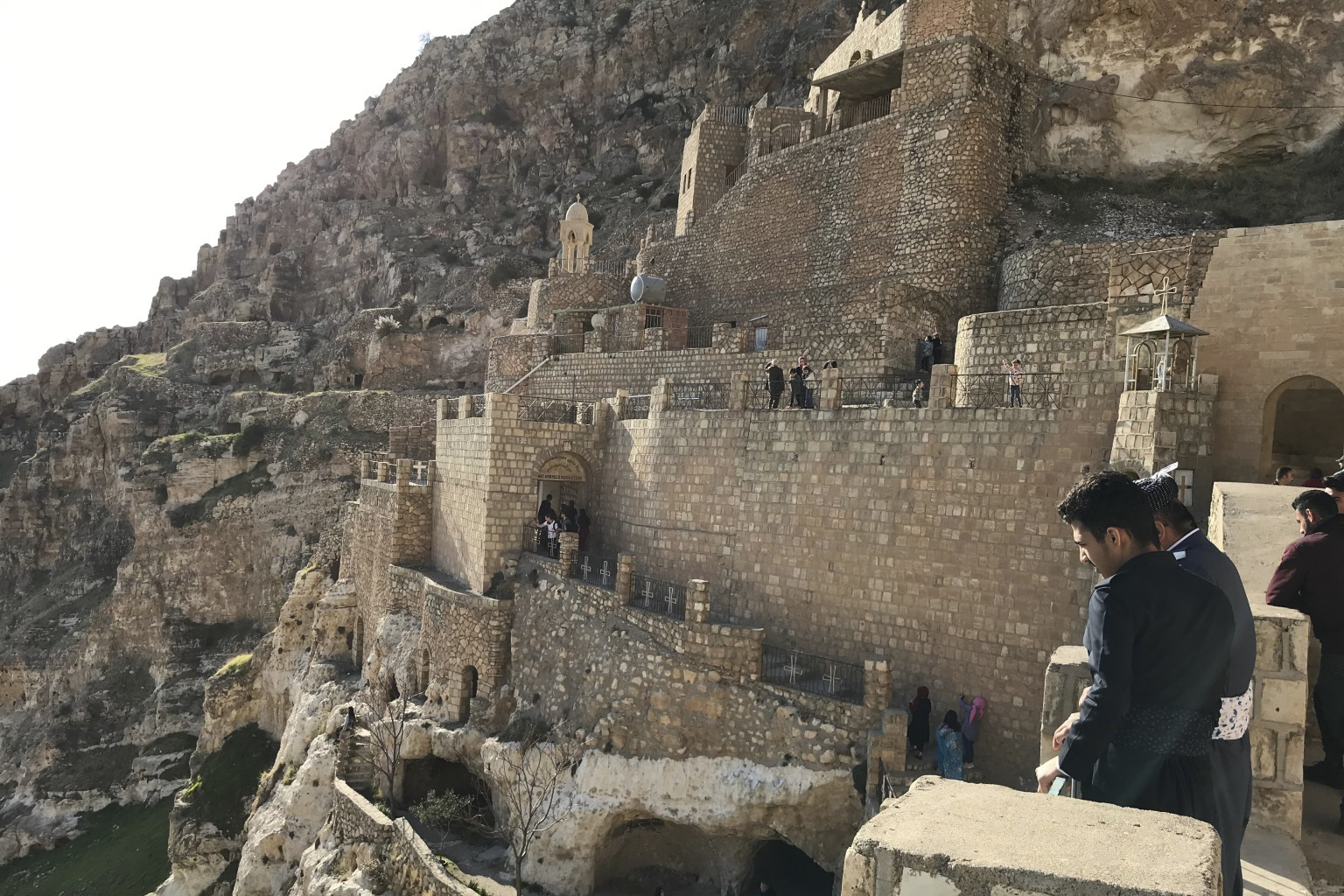Now the residents of Alqosh hope that the visit from Pope Francis to Iraq will secure their peace.In the Nineveh Plain covered by a mantle of greenery, spring has already swept away winter. Clinging to the mountain range that crosses northern Iraq from east to west and against which the immense fertile expanses come to abut, the village of Alqosh dominates the plain proudly. Through a check-point held by Kurdish forces, one reaches the small town populated only by Christians but whose origins date back to the 8th century BC, at the time of the end of the Assyrian empire. There is also found the tomb of Nahum, one of the Twelve Minor Prophets of the Bible, who foretold the fall of Nineveh and Assyria.
A few kilometers above the large town is the majestic monastery of Rabban Hormizd (above), as if suspended from the rock face. Founded around 640, it is a key reference point of Christianity in Iraq, one of the seats of the Church of the East which sent missionaries as far as India and China.

Alqosh © I.MEDIA/Hugues Lefèvre
At the end of February, the mild season pushed some locals to climb up to the now unoccupied monastery. Alongside many Kurds who came in traditional dress to contemplate the prodigious citadel, we find a few Christians, such as Ghanem and Suha, a retired couple. As they talk about Pope Francis’s imminent visit to the Plain of Nineveh, the old man’s eyes fill with tears. It is difficult for him to contain his emotion, so great is the joy and pride in welcoming the Successor of Peter to his land.
“This is a first for Iraq!” he insists, with a demonstrative and contagious smile. With his wife, he used to live in Mosul. However, over the years, the security of Christians in the city has deteriorated and they have fled from ancient Nineveh to settle in Alqosh.
“To be able to live in safety” is the refrain that Christians always return to when they are asked what they would like to ask from Pope Francis.
It must be said that all of them remain traumatized by their last ordeal, the date of which is also on everyone’s lips: 2014. Seven years ago, on the night of August 6-7, some 120,000 Christians had to flee in haste to find refuge in Iraqi Kurdistan. One by one, defenseless, towns fell into the hands of Islamists who were going to occupy them for more than two years.

Athra, 31 years old © I.MEDIA/Hugues Lefèvre
“Not Alqosh!” says Athra, 31, living in the village of 5,000 souls. “Here, the families left for a month and the men held the place. When we saw that Daesh wouldn’t come, our families came back,” he says.
Why didn’t the town fall prey to the Islamists in the end? There are many hypotheses, according to Athra, but the geographical location of the town probably had a lot to do with it – Daesh’s men would have had to use a lot of energy to take and hold this territory clinging to the mountainside. The young teacher of soureth, the language of the Assyrians, also points out another reason: “There are no Muslims here, so they had no guide to lead them.”
Like many Christians in the Nineveh Plain, the young man feels that trust has been broken with the Muslims. “They cooperated with Daesh. Of course, in the end they also suffered because it’s a terrorist group. But it’s difficult to live next to neighbors who have betrayed our trust,” he says.

The Nineveh Plain from the Rabban Hormizd monastery © I.MEDIA/Hugues Lefèvre
In the end, Alqosh was never attacked by the men of the Islamic State Organization, but the trauma remains present. Some Christians still do not understand how the Nineveh Plain could be abandoned by Kurdish and Iraqi forces in 2014.
Wishing to take the lead in case a new Islamist hydra should emerge, some advocate for the constitution of a province for Christians and Yezidis in northern Iraq.
“This province of the Nineveh Plain would allow us to ensure our protection with our own forces,” says Athra, who actively promotes this cause. He assures that, “If we could achieve the advent of such a province, there wouldn’t be dozens of Christian families returning from abroad, but thousands.”
However, this political project is strongly criticized by a large part of the Iraqi episcopate, following the example of His Beatitude Louis Raphael Sako, patriarch of the Chaldeans. For many, the desire to establish a “Christianistan” is both a political and spiritual error.
“We don’t have to have Christian militias,” says a Chaldean priest from the diocese of Alqosh. “We must not defend ourselves as Christians but as Iraqis,” he insists. However, everyone agrees that the current weakness of the state does not allow for a better future for minorities who feel disadvantaged and vulnerable to new tragedies.

Rabban Hormizd Monastery © I.MEDIA/Hugues Lefèvre
A few dozen meters from Athra’s house, the bells of St. George’s church ring out the end of the Mass. Dozens of faithful come out, and it’s an occasion to discuss with them their joy upon welcoming Pope Francis soon. But while we might have expected overwhelming enthusiasm on their part, we’re surprised by a certain restraint. No doubt the bitterness of not seeing the Pope visit Alqosh is mixed with the deeper doubts they have about their future on this land.
Will the Pope’s visit be able to lay the foundations for a better future for them? In this region evangelized by the Apostle Thomas, some people are waiting to see before they really believe.








